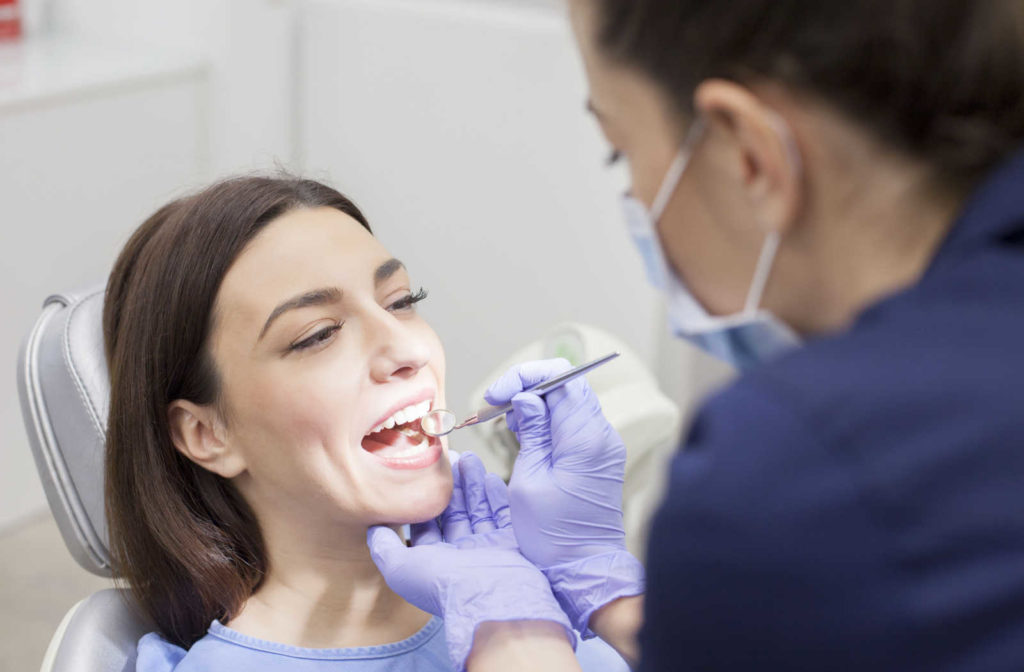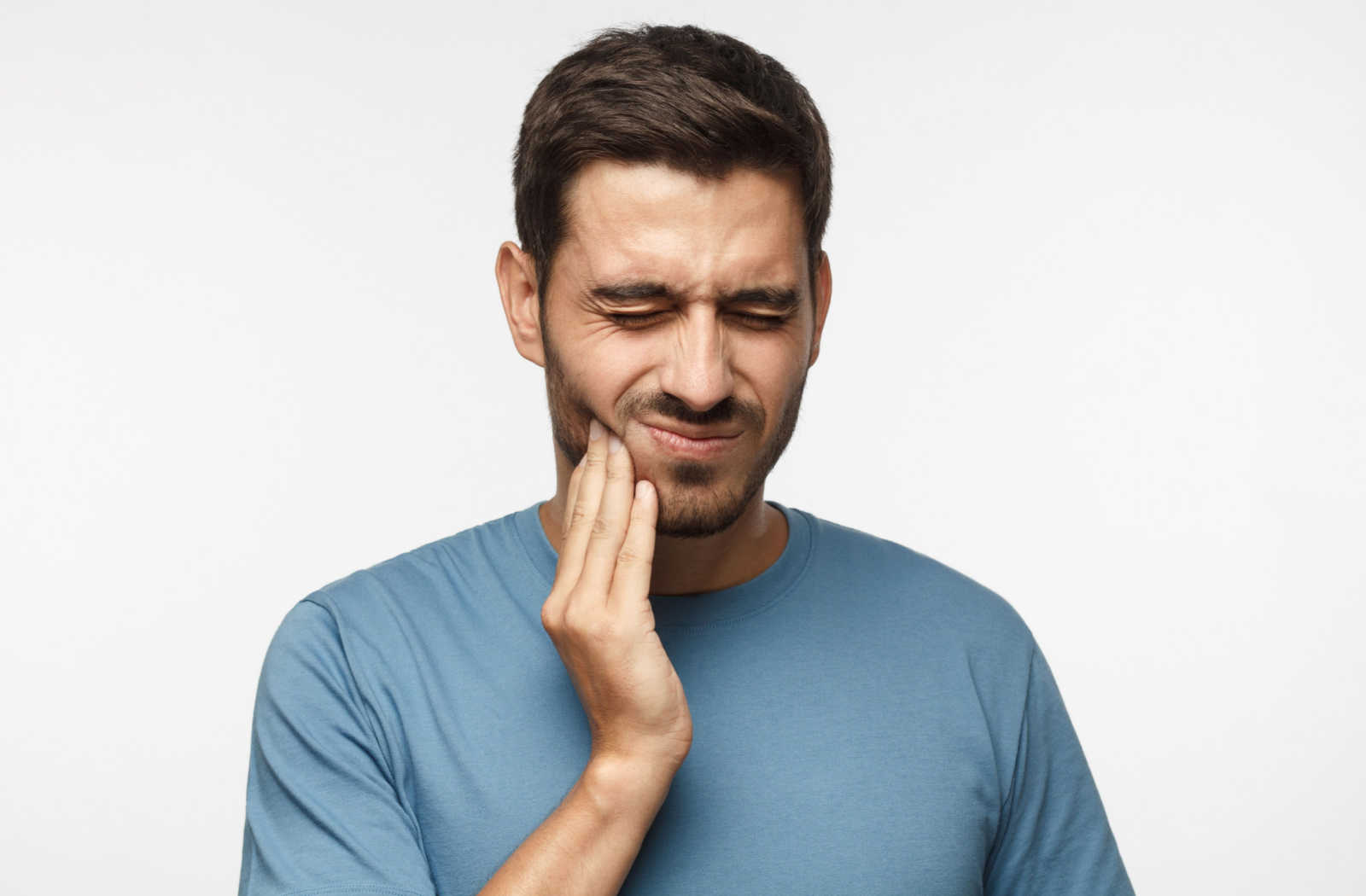Toothaches can make you miserable. The pain is disruptive at best, and at its worst, it may be debilitating. If your toothaches also become headaches, your whole face, neck, and jaw can be affected.
Because of the shared muscles and nerves in the face, mouth, jaw, and head, toothaches and headaches can be interconnected. The dental team at Markham Dental Smiles can perform a dental exam and determine whether you’re struggling with tooth damage, teeth grinding, temporomandibular joint disorder (TMD), or something else. With the right treatment, we can help prevent future oral health problems.
What Are the Symptoms of a Toothache?
Toothaches can cause different types of pain in your mouth, such as:
- Burning pain
- Sharp pain after biting down or in response to pressure
- Throbbing pain in the tooth
- Gum inflammation
- Tenderness and aches around the tooth
- Painful sensitivity to extreme temperatures
If you’re in pain because of an underlying infection, you may also experience facial swelling, fluid drainage, or fever. A dental exam is the first step to managing the pain and treating the toothache at its source.
What Causes Toothaches?
Pain in your tooth is often the result of another dental problem, including:
- Abscessed tooth
- Cracks or fractures in the tooth
- Damaged fillings
- Tooth decay
When there’s damage to your tooth, its innermost layer, the pulp, can become exposed. The pulp contains all the nerve endings, connective tissue, and blood vessels that keep the tooth healthy. Inflammation can trigger pain, leading to symptoms in other parts of your body.

Headache & Toothache Connection
It’s not uncommon for toothaches and dental problems to lead to head pain. Nerve connections link the teeth and other facial structures to the head, spreading pain beyond the teeth.
You may assume that headaches can only be treated by your family doctor, but an assessment with Markham Dental Smiles can detect connections between your headaches and your oral health.
Teeth Grinding
Bruxism, or teeth grinding, can easily cause head pain. During the night, as you clench your jaw or grind your teeth, you can cause head pain, and wake up with a headache seemingly out of nowhere. Some common symptoms of teeth grinding are:
- Sore jaw and teeth
- Difficulty chewing, opening, or closing the mouth
- Clicking sound in the jaw
It’s easy to confuse bruxism headaches with tension headaches because the neck and jaw muscles are affected by the condition. Prolonged, untreated bruxism can cause:
- Worn enamel
- Damage to crowns or fillings
- Tooth fractures
- Flattened teeth
- Expose the pulp of the teeth
- Muscle tension
During your dental exam, your dentist may perform a visual and physical assessment to identify signs of bruxism. We can treat the condition with mouthguards, lifestyle tips, or other techniques to reduce headaches and tooth damage.
Temporomandibular Joint Disorder (TMD)
When there’s dysfunction in the jaw joint in front of the ear and the surrounding muscles, you can experience headaches and toothaches. The joint, along with muscles and ligaments, works together as you chew, speak, yawn, or swallow, but problems with the joint can cause pain that extends to the temple, head, and neck.
Bruxism, chronic stress, or jaw clenching are common causes of TMJ pain, and you should visit your dentist if you experience:
- Neck, jaw, face, shoulder, or head pain
- “Locked” or “stuck” jaw
- Painful clicking or popping
- Difficulty with chewing or an uncomfortable bite
TMD can also cause toothaches, dizziness, tinnitus (ringing in the ears), or earaches.
Migraines
You have a cranial nerve called the trigeminal nerve that may be the connection between toothaches and migraines. The maxillary and mandibular division of this nerve transmits sensory information from the cheeks, lips, teeth and jaw, and the roof of the mouth.
Toothaches can aggravate this nerve, set off a migraine, and radiate pain throughout your head and face. This neural connection also works in the opposite direction—if you have a migraine, pain can radiate to the teeth without an apparent dental problem.
Since toothaches and migraines are so tightly intertwined, it can be challenging to determine where the pain originates. Your dentist can help detect tooth infections or impacted teeth, or other oral health issues that may be the cause.
Manage Toothache Pain with the Help of Your Dentist
The pain from a toothache can be incredibly uncomfortable, taking a toll on your quality of life. If you’re developing a new toothache or have chronic dental pain, we can help you find the right diagnosis and treatment at Markham Dental Smiles.Schedule an appointment for a dental exam, and let us help you find relief.







